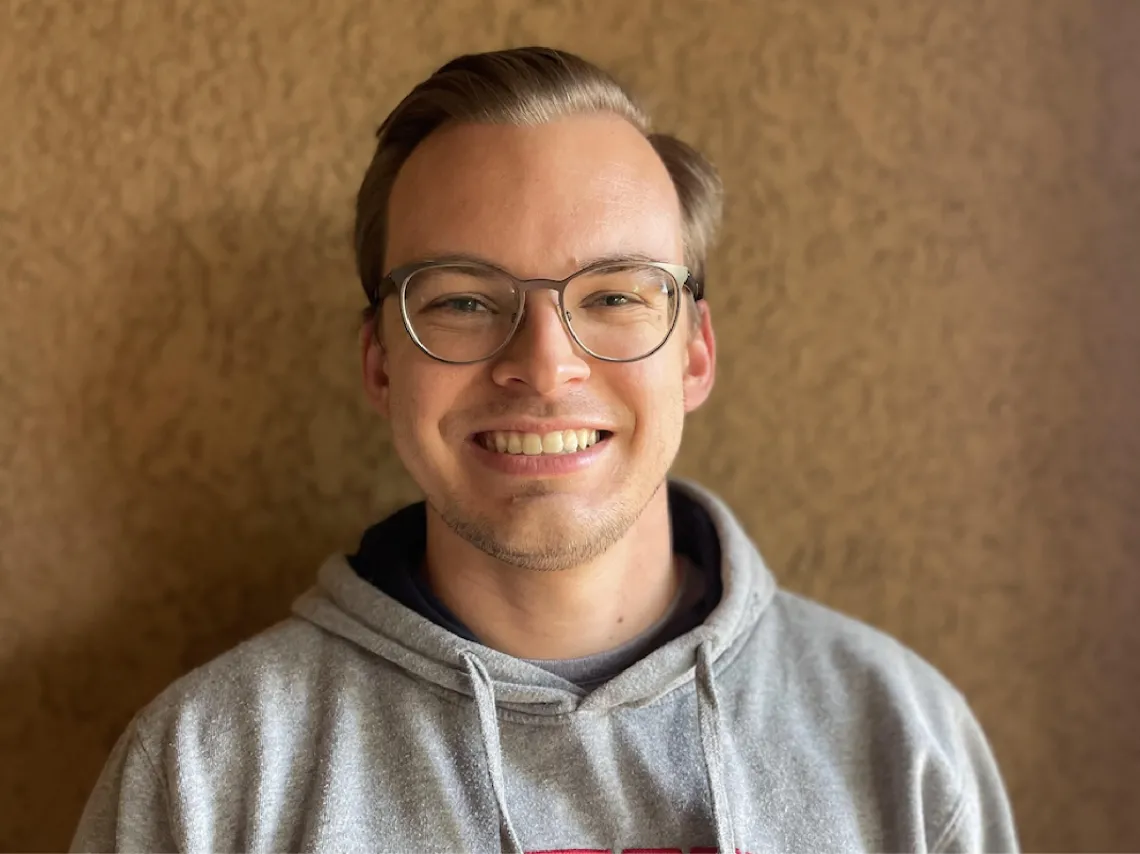PharmSci Spotlight: Matt Huntley

 Name: Matt Huntley
Name: Matt Huntley
Hometown: Phoenix, AZ
Program: Bachelor of Science in Pharmaceutical Sciences
Q: What inspired you to pursue a degree in Pharmaceutical Sciences?
My major was originally in biochemistry. I always knew I wanted to eventually find a career in bioscience research, but in my early biochemistry courses, I had a hard time visualizing how what I was learning in class translated to an actual job. When I heard about the Pharmaceutical Science major, it just clicked for me. PharmSci felt like the total synthesis of the different things I had been learning—organic chemistry, physiology, biochemistry, and so on—but with a clear, direct practical application.
Q: What are your plans for after graduation?
A: I’ve been accepted into the Arizona Biomedical and Biomedical Science doctoral program and I’m super excited to be continuing my studies and pursue my Ph.D. right here in Tucson! Because of the nature of the ABBS program and first-year rotations, I don’t know exactly what my doctoral degree will be in yet, but I can’t wait to explore all of my options and try lots of different things. I’m particularly interested in how cutting-edge genetics techniques can be applied to improve the lives of people suffering from chronic disease.
Q: You are part of the second class to graduate from the College of Pharmacy. How does it make you feel to know that you are helping to pioneer a new program in the college's history?
A: It’s been an awesome experience being involved in a new degree program. I got to take advantage of the smaller class sizes to build relationships with my professors, and I think their support was a huge factor in getting into graduate school. It was also cool to be able to have an open dialogue with my professors about the structure and content of the major courses, beyond the typical course evaluations. Dr. Khanna’s Drug Design class has also been an incredibly unique experience that I don’t think you can find in any other major.
Q: What was your favorite memory from school?
A: My favorite memories from college are all based around my time doing research in the lab of Dr. Catharine Smith in the College of Pharmacy. I had the opportunity to work on a lot of different projects and develop a lot of different skills, but my favorite memories are when I got to share my work with others. One such time was the Undergraduate Biology Research Program (UBRP) Symposium which, despite being online due to COVID, was a great opportunity for me to share some of the work I had done on developing a rational basis of drug combinations for the treatment of aggressive lymphomas. In that vein, it’s hard to describe how proud I felt when I found out I would be included as an author on the publication of findings from a related project.
Q: Do you have any words of advice for students who may be thinking about getting a degree in Pharmaceutical Sciences?
A: My biggest piece of advice would be to not be afraid to get to know your professors. Especially with the pandemic and the nature of Zoom teaching, I promise that your professors want to hear from you and see your face more than ever. As well, you should attend office hours even if you’re not particularly struggling with the course material; starting to build a relationship with that professor early on makes a huge difference when you do run into trouble. Going off of that, I can’t recommend enough that you get involved in research! Even if you’re not planning on pursuing research as a career, the knowledge and skills (both science and life) you can gain working in a lab are invaluable. If you don’t know where to start, just ask some of your professors about their research (there’s not a professor on this planet who doesn’t love talking about their work) and find out what kind of stuff you might like. From there, don’t be afraid to reach out to faculty members whose work you’re interested in and see if they’re looking for undergraduate assistants. Even if they don’t have room in their lab, it’s possible they could know a colleague who is looking for help. There are also great opportunities like UBRP where they’ll help match you with a mentor, provide professional development opportunities, and even pay you to do science!
Story by: Gracie Lordi

